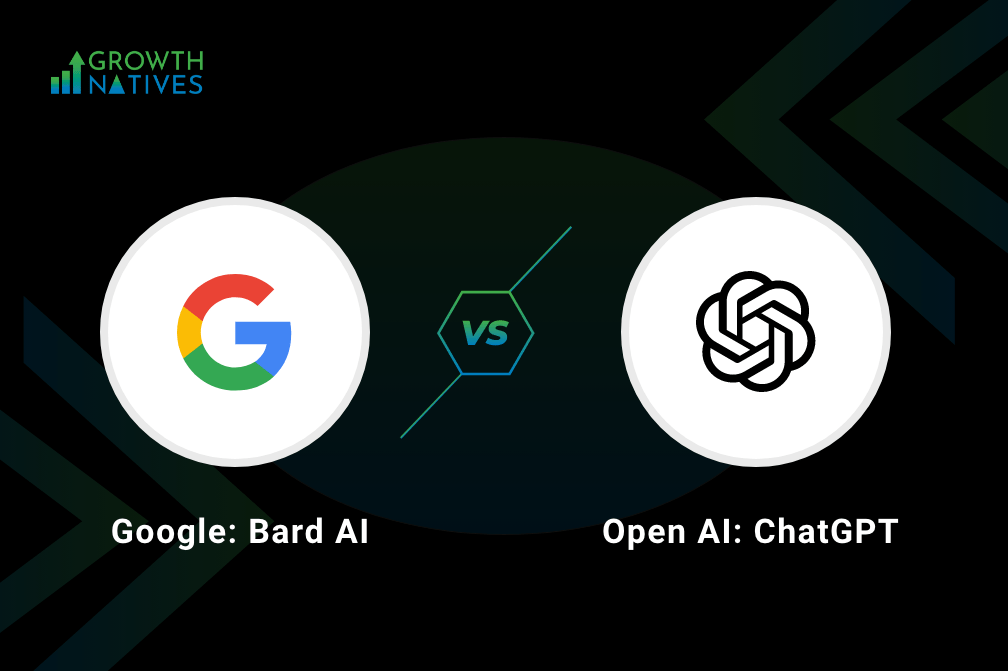Amplifying Your Conversational Marketing Strategy With Chatbots

Table of Contents
It would be an understatement to say that the tremors sent by the Covid-19 pandemic have changed the world of business. Businesses around the world, small and big, have in fact seen a 360 shift in how they approached the digital marketing paradigm. This is why they are increasingly adopting the digital-first approach.
Since the advent of this global health catastrophe, businesses have been redrawing their marketing and messaging strategies. In the early days of the pandemic, conversational marketing and AI-driven chatbots came to the rescue of businesses when staff had to stay locked in their homes.
The chatbot market is expected to be valued at $9.4 billion by 2024 which is approximately 4X growth from $2.6 billion in 2019. Businesses adopting chatbots for conversational marketing are expected to save $8 billion by the end of 2022. These stats signal how conversational marketing is taking the center stage, increasingly becoming an important tool for relationship building and conversions.
The idea behind conversational marketing for businesses is to connect with users, listen to them, and deliver such that it builds trust between the brand and the user. Unlike traditional marketing approaches that have time, space, and resource limitations, conversational marketing encourages seamless dialogue with customers on a large scale. Answering questions in real time and personalizing the experience for the user eventually improves funnel conversion.
What Is Conversational Marketing?
Conversational marketing is a personalized way of interacting with prospects and customers using AI-powered chatbots and voice assistants. At the heart of this marketing strategy is a one-on-one engagement with the prospect where they feel the communication is meant only for them instead of a traditional marketing approach that aims at reaching the masses. In an era where organizations are increasingly adopting automation, conversational marketing is redefining customer engagement.
Conversational marketing helps organizations leverage real-time conversations in a two-way dialogue and helps in building trust and rapport with prospects. This marketing strategy has found resonance among small and large brands as apart from engaging with the audience, it also helps them gather valuable customer data. Conversational marketing uses different touch points including websites, social media handles, and paid advertising platforms to establish communication with the audience.
Chatbots work 24/7 and help businesses expand their engagement capacity without the need for additional staffing. They are pre-programmed to understand the needs and aspirations of prospects and engage in human-like interactions. Chatbots leverage natural language processing technology to improve their responses that organizations use to save time, resources, and cost incurred in client engagement and improving the sales funnel.
How Conversational Marketing Helps Meet Organizational Goals
We have already discussed what conversational marketing is and how chatbots are used by businesses. Now we will look at some of the goals organizations can fulfill with this strategy and how you can employ it to supercharge your marketing campaigns.
1. Engage New Prospects
Conversational marketing, especially using chatbots, is a potent strategy for generating new leads and engaging with them. Chatbots leave behind a good impression on prospects by making them aware of a brand’s products and its USPs.
For instance, you can introduce a first-time website visitor to your product in an interactive way by making them learn about the value proposition. Following up with such leads, you can convert them into paying clients faster than when you use other marketing strategies.
2. Know Your Customers and Create Positive Experience
In a competitive business world, knowing the wants, likes, and dislikes of your customers gives you a head start. Conversational marketing allows you to get deep inside the minds of your audience. This knowledge helps in catering to their needs in a personalized manner.
In turn, you can create a positive experience for your customers as you can have real conversations with them where you answer their queries and solve their problems in real time.
3. Improve Cross-Selling and Upselling
Modern chatbots, especially those that are AI-powered, have become smarter and adaptive to offer human-like assistance for all queries. They can interpret the exact queries instead of keyword-based responses that were common with chatbots of the previous generation.
Chatbots today can conduct preliminary research about a prospect's likes and preferences, creating opportunities for cross-selling and up-selling, and thus for scaling faster.
Conversational Marketing Best Practices
Once you have figured out your goals with conversational marketing and using chatbots to increase conversions, you must work on a well-pronged strategy that helps you meet those goals. Here are some of the best practices that would let you energize your conversational marketing strategy with chatbots.
1. Use Chatbots Strategically
Chatbots are powerful tools and hence you should use them strategically on your website’s landing pages and social media handles. Though you can have the chatbot integrated into your website’s design across all pages, they can be a distraction in certain areas of the website.
This is why you should use chatbots in landing pages that attract maximum page views and where you are likely to see high-intent visitors ready for a conversation.
2. Greet the Visitors
You cannot wait for the visitor to start the conversation; you need to adopt a proactive approach. Ask for the name and contact details of a first-time visitor and use this data to make the conversation personalized when they return to your website.
Your chatbot should guide the users toward a logical end in case they are lost on the website much like a customer care executive would do in a physical store or over chat or email.
3. Set Up a Conversation Strategy
Plan out a conversation flow based on your goals and the stage of the customer’s journey on your website. Set the number and types of questions accordingly.
Irrespective of the stage of the journey, you must always ask for the customer’s email and contact details at the beginning to better serve them. This would also ensure continuity in conversation in case of a returning visitor.
4. Keep The Tone Casual
Your chatbot interaction must be casual instead of overtly formal. The user should get the sense of engaging with a human as this is what motivates them to ask questions.
Focus on prompt replies based on the exact query instead of long answers. Avoid asking unnecessary questions and diverting their attention with too many to-do actions. Keep it short and simple.
5. Use Lead Magnets
Users like continuity in their engagement with a brand and therefore, you must use a lead magnet to offer them information on topics they are interested in. It can convert even the half-hearted user into a customer.
This strategy is also useful when it comes to first-time users as you will be able to generate new leads for your sales team to convert.
6. Show the Incentives
Not all users interacting with a chatbot will show high intent. Many of them will still be in dilemma on the incentive your products offer and may be reviewing their options. Therefore, you need to show them the incentives.
Your chatbots should discuss users’ problems and show how you can solve these problems with your products.
7. Always Ask for Feedback
Like all other marketing strategies, your conversational marketing strategy has lots of scope for improvement. The best way to improve is by asking for feedback and suggestions from users. Do not force it upon customers while asking for feedback and instead make it optional.
Final Thoughts
Chatbots sit at the heart of your conversational marketing strategy and can increase your outreach infinitely. They aren’t restricted by the constraint of time or human resources and can act as a force multiplier in your lead generation and lead conversion campaigns. Using chatbots, you can cut operational costs by 30% and increase conversions by 10-100%.
However, don’t commit the mistake of selling your chatbots as real human agents as smart users won’t take much time to figure that out. This can ruin the whole idea of using chatbots. Chatbots are tools that aid your human marketers and help you get closer to leads to turn them into customers. Use chatbots to increase your reach and cut down on human labor but don’t mistake them for a replacement for your customer service team.
If you are looking for a partner that can help implement AI-powered chatbots and other marketing automation strategies for your brand, you don’t need to look beyond Growth Natives. We are at the forefront of marketing automation services and help organizations scale up their business and power their sales funnel. Drop an email at info@growthnatives.com and let us energize your conversational marketing strategy with chatbots.
Author Box
Sakshi Arora
Sakshi Arora is a seasoned content writer and editor with extensive experience across various industries including B2C, B2B, travel, e-commerce, and IT. In her free time, she enjoys expressing her creative side through painting and writing poetry. She also finds solace in nature and has a deep spiritual connection. Music brings her immense joy.




